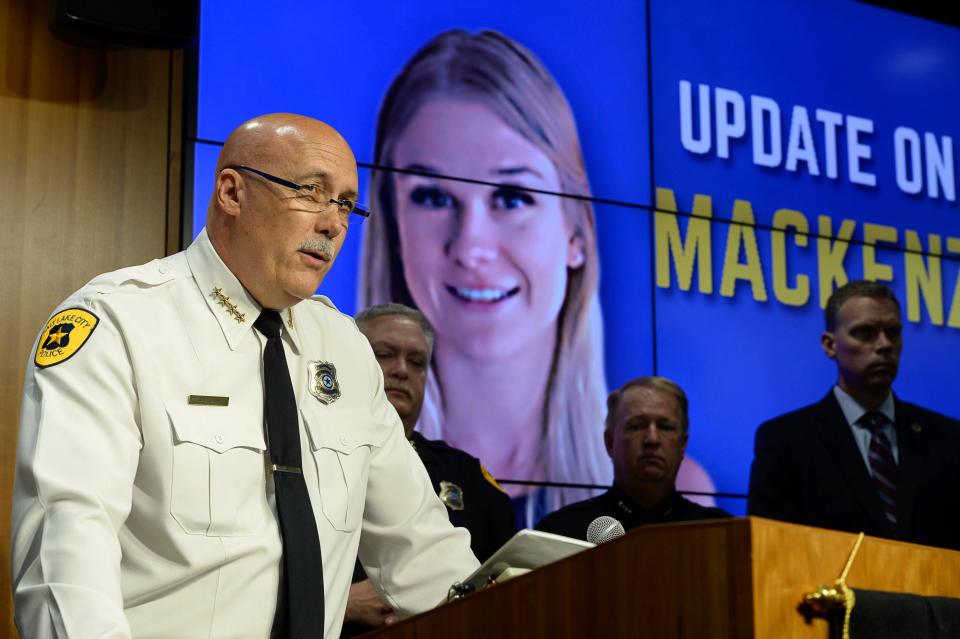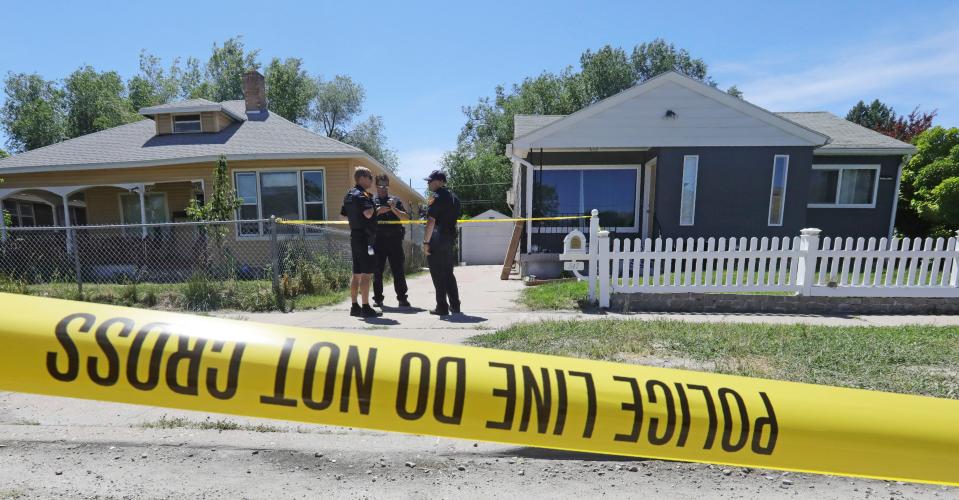Police continue to track digital evidence after arrest in the death of student Mackenzie Lueck
Salt Lake City Police and the FBI are scouring a digital trail even after the arrest of a suspect in the disappearance and death of University of Utah student Mackenzie Lueck.
Police used cellphone records, GPS location data and social media posts that led them to Ayoola A. Ajayi, who was arrested and charged with kidnapping and murder Friday.
Salt Lake City Police Chief Mike Brown said Lueck and Ajayi had exchanged messages the day before Lueck went missing, and Brown emphasized the importance of digital forensic evidence in the ongoing investigation.
Lueck, 23, was last seen June 17 by a Lyft driver who picked her up from the Salt Lake City airport and dropped her off at a park, where she reportedly met with someone in a car around 3 a.m. Police now believe that the person she met was Ajayi, 31.
Online court and property records show Ajayi, who was divorced this year, had no Utah criminal record. His home is 5 miles from the park where Lueck was last seen.
Mackenzie Lueck: Man charged with murder in disappearance of missing Utah college student

Police spent Wednesday and Thursday searching Ajayi's home and property, where they say they found evidence linking him to the crime. Neighbors reported smelly burning coming from Ajayi's property days after Lueck went missing, and when police searched the yard they found a fresh dig area. An examination of the area led police to charred personal items of Lueck's, and the Utah State Crime Lab helped them identify charred human tissue as matching Lueck's DNA.
According to Brown, police are still attempting to locate a mattress and box springs given away from Ajayi's residence the week after Lueck went missing.
On Saturday, a contractor told ABC News that Ajayi sought him out a few months ago to build a soundproof room in his home with hooks drilled into concrete walls and a secret entrance with a thumb lock. The contractor said he declined to take the job.
“Honestly? I don’t know what he wanted it for,” contractor Brian Wolf told ABC News’ Salt Lake City affiliate, KTVX.
Disappearance: University of Utah student Mackenzie Lueck took a Lyft to meet someone at a park. Now she's missing
As the investigation into Lueck's death continues, the family of another slain University of Utah student is taking action to improve the safety of young women.
Jill and Matt McCluskey, the parents of Lauren McCluskey, plan to sue the school for $56 million for failing to protect their daughter despite several attempts to report that she felt threatened by her ex-boyfriend Melvin Rowland, according to the Associated Press.
Lauren McCluskey was fatally shot by Rowland, 37, in October, less than two weeks after she broke up with him for lying about his name, age and status as a sex offender, AP reported. The two had previously dated for about a month.
Her parents said their daughter called campus police at least 20 times to report Rowland, and the university failed to “protect their daughter when she was a student,” according to the lawsuit. She was on the phone with her mother while walking on campus when she was abducted and shot by Rowland. He later killed himself.
The McCluskeys said the money from the lawsuit would go into a trust to improve safety for women on campus. The McCluskeys said that ideally they would have joined forces with the University of Utah to improve campus safety but university leaders failed to take responsibility or hold relevant individuals accountable.
“The only way to improve campus safety is to file a lawsuit,” Jill McCluskey said in a press conference Thursday. “This is our last resort to effect positive change.”

As the University of Utah community grieves the loss of yet another young woman, the Utah Domestic Violence Coalition has spoken out against speculation about the circumstances of Lueck's death:
“The recent disappearance of Mackenzie Lueck has resulted in many people speculating on what may have happened to her and why – with much of the speculation being a blatant form of victim blaming,” according to a statement. “While we do not know the details of Mackenzie’s disappearance, we do know that victim blaming and shaming is inappropriate and unacceptable. In addition to perpetuating myths about abuse, assault, and violence, victim blaming wrongly excuses the perpetrator’s behaviors.”
Lueck was a senior at the University of Utah, where she studied kinesiology and pre-nursing, according to a statement by the university.
This article originally appeared on USA TODAY: Police continue to track digital evidence after arrest in the death of student Mackenzie Lueck

